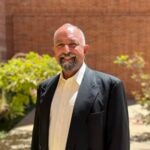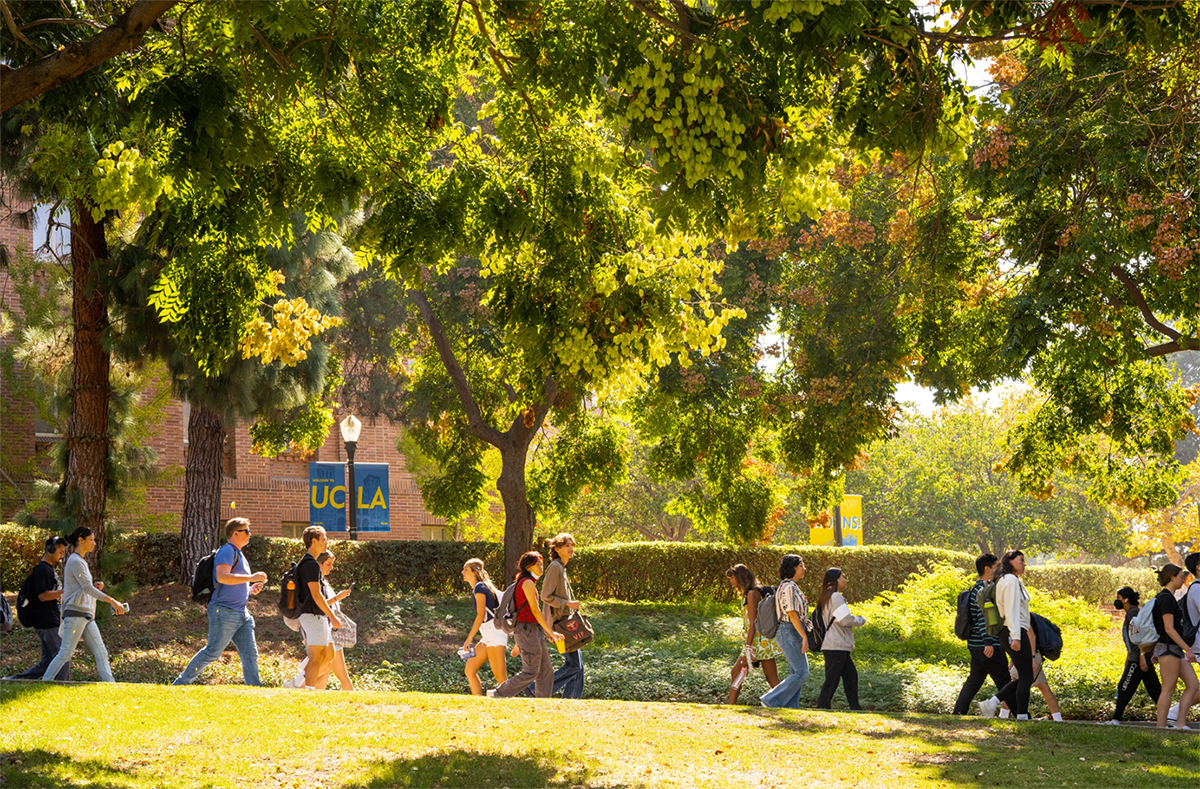UCLA M.D./M.A. Education Articulated Degree
The degree program will help shape the future of medical education by transforming teaching, curriculum development and leadership in medical education institutions.
Academic Information
- Become Change Agents: Shape the education of the next generation of medical students by transforming teaching, curriculum development and leadership in medical education institutions.
- Learn from Expert Faculty: Learn from expert faculty dedicated to educational research and social transformation.
- Small Classes: Interact with faculty and fellow students in rich discussions in small, seminar-type courses.
- Potential Career Opportunities: Preparation for future leadership positions in schools of medicine such as dean for education, dean of student affairs, medical education curriculum specialist, learning assessment specialist, director of residency programs, director of educational program evaluation, director of educational research, or community leaders in educational contexts.
Multiple Pathways: Choose from four different emphases in education depending upon personal interests, career goals and leadership aspirations:
- Higher Education and Organizational Change
- Human Development and Psychology
- Social Research Methodology
- Social Sciences and Comparative Education
Medical Education Electives: Specific exposure to issues in medical education including, effective teaching pedagogies, curriculum development and social justice leadership.
Research Methods: Induction in quantitative and qualitative research methods for evidence-based interventions and program evaluation.
Social Transformation: Immersion in the transformative power of education to effect social change.
Social Justice: Deep engagement with issues of justice, equity, diversity, and inclusion in education.
- One year full-time (end of September to mid-June).
- Nine courses plus optional electives in medical education.
- Year-end capstone research project.
- Designed to be integrated with DGSOM’s HEALS curriculum.
- Reserved (limited) spots for DGSOM students.
1. ED2XX: Effective Pedagogies in Medical/Health Professions Education
Introduction to principles and approaches for effective pedagogies in medical education/health professions education including, setting instructional goals; aligning goals, content, and assessments; promoting healthy classroom ecologies, using multiple methods, providing differentiated instruction; giving effective feedback and other instructional strategies.
2. ED2XX: Curriculum Construction in Medical/Health Professions Education
Introduction to principles and practices of curriculum development in medical education/health professions education including, needs assessment; setting curricular goals and objectives; determining content; choosing educational strategies; formulating assessments, and other principles and practices. Students will begin to design a curricular intervention in their area of interest.
3. ED2XX: Social Justice in Medical/Health Professions Education
Introduction to issues of justice, equity, diversity, and inclusion in medical education/health professions education including the role of race, class, and gender on access and achievement, anti-racist and inclusive pedagogies and curriculum and social justice leadership in education.
4. ED140: Educational Perspectives of Relational Practices in Modern Medicine
Discussion of personhood and body concepts in the context of asymmetric person-to-person relationships in high-tech modern medical training and practice; exploration of diverse implications for building theories of relational practice; students learn to use phenomenological approaches for making sense of lived experience and of the world we inhabit.
M.A. Education Degree Pathways/Emphases (students choose one):
Higher Education and Organizational Change (HEOC)
- Provides an understanding of the historical, political, social, and philosophical elements that have shaped and continue to affect higher education.
- Designed for students whose primary career interests are in research and teaching in institutions of higher education, higher education administration working in student affairs, academic affairs, or college leadership or working in a research or policy institute.
Human Development and Psychology (HDP)
- Exploration of the conditions and processes that promote learning and development in a variety of social contexts for individuals and groups from diverse backgrounds.
- Study the nature and course of human development, in contexts to inform practices and policies that affect the welfare of children.
- Designed for students interested in human learning and development to improve educational practices.
Social Research Methodology (SRM)
- A study of the design and conduct of educational research (quantitative, qualitative and mixed methods) and evaluation.
- Includes analyses and interpretations of data in the context of theory and practice, critical examination of research-based claims.
- Program is designed for students who are interested in research methodologies and have interests in educational areas or issues.
Social Sciences and Comparative Education (SSCE)
- Exploration of issues of social, cultural, historical, philosophical, and comparative/international contexts of education.
- Multidisciplinary approach bringing various methodologies and vocabularies to the study of education.
- Two areas of inquiry: i) comparative/ international studies in education, ii) race, ethnic, and cultural studies in education.


